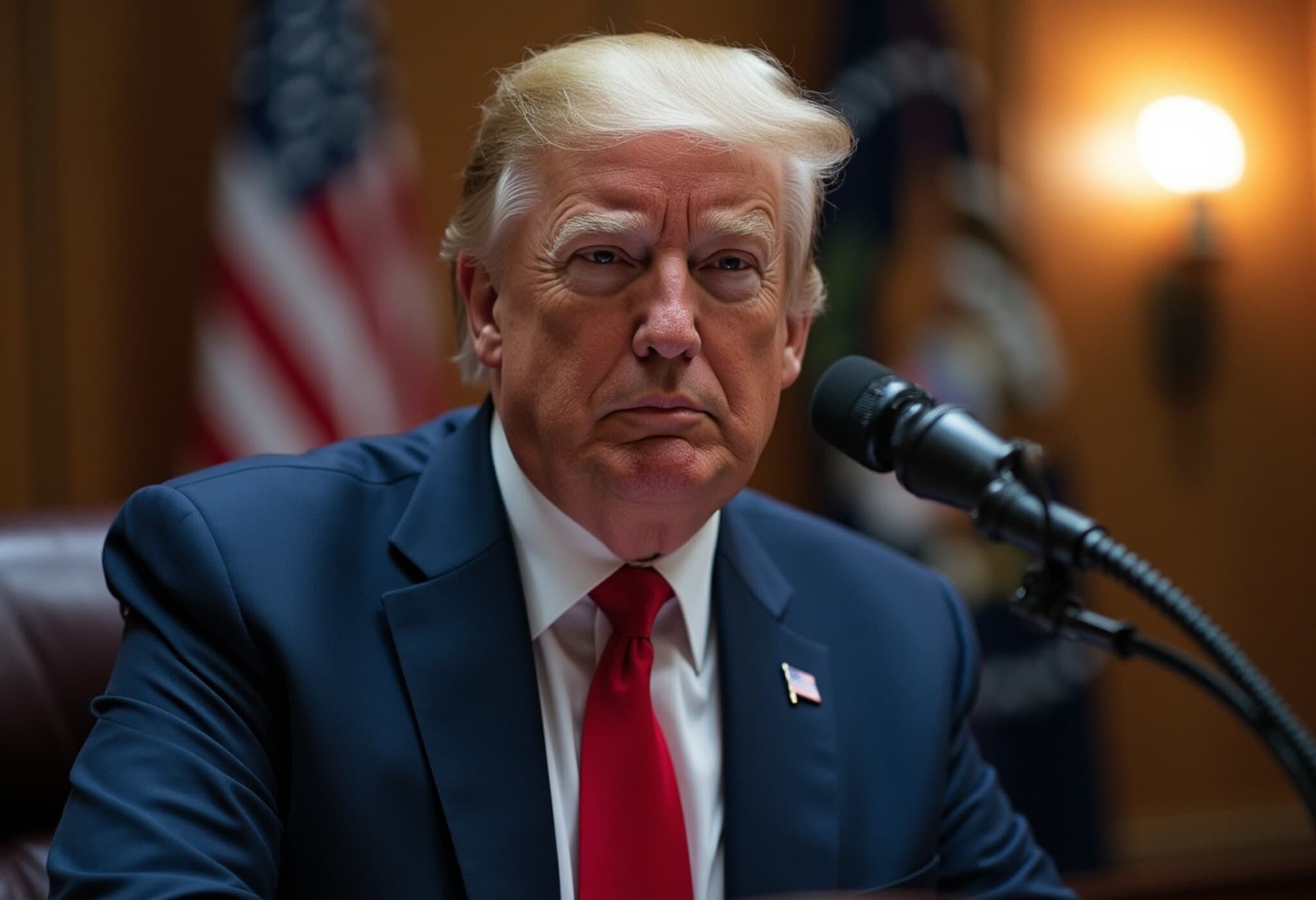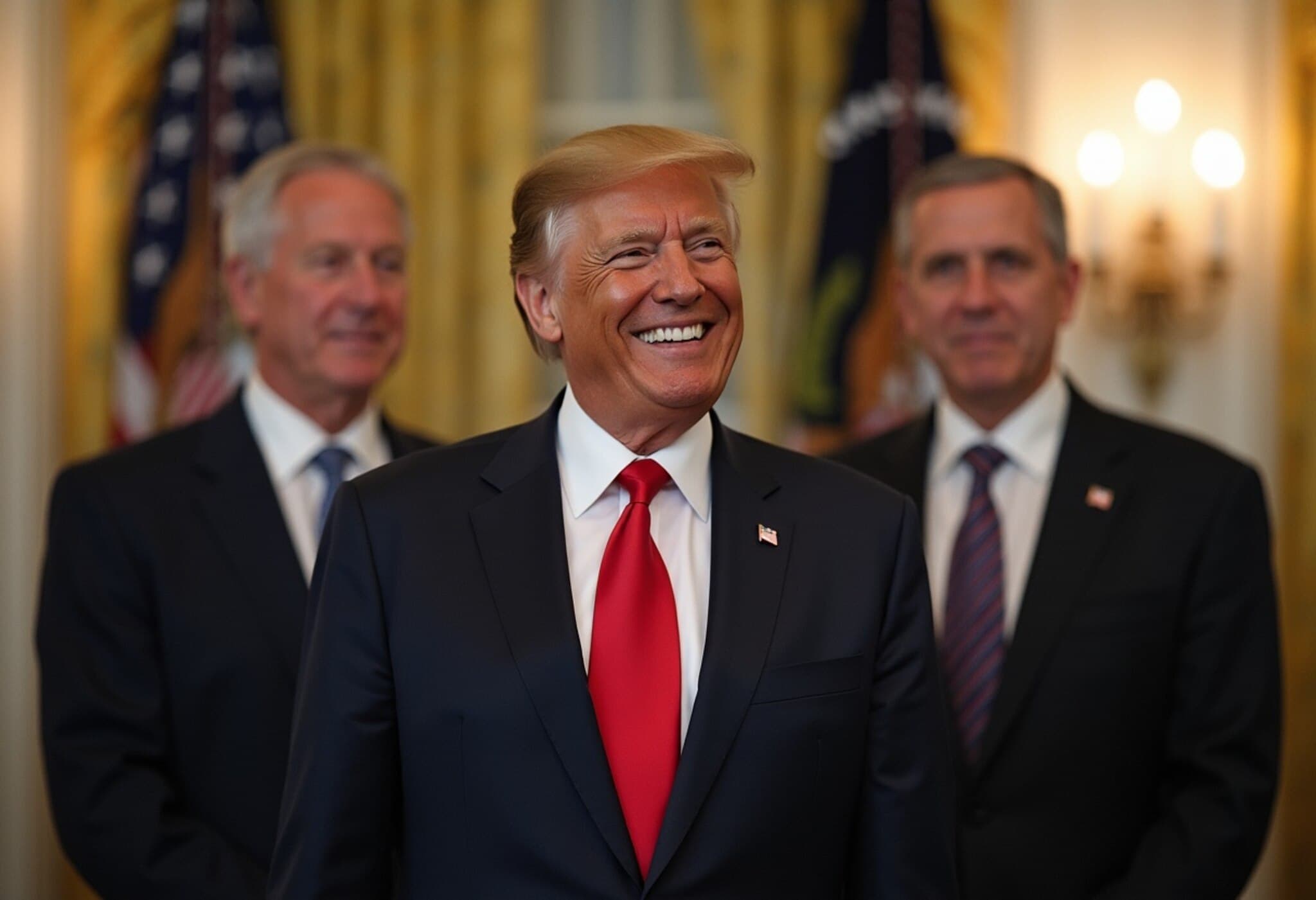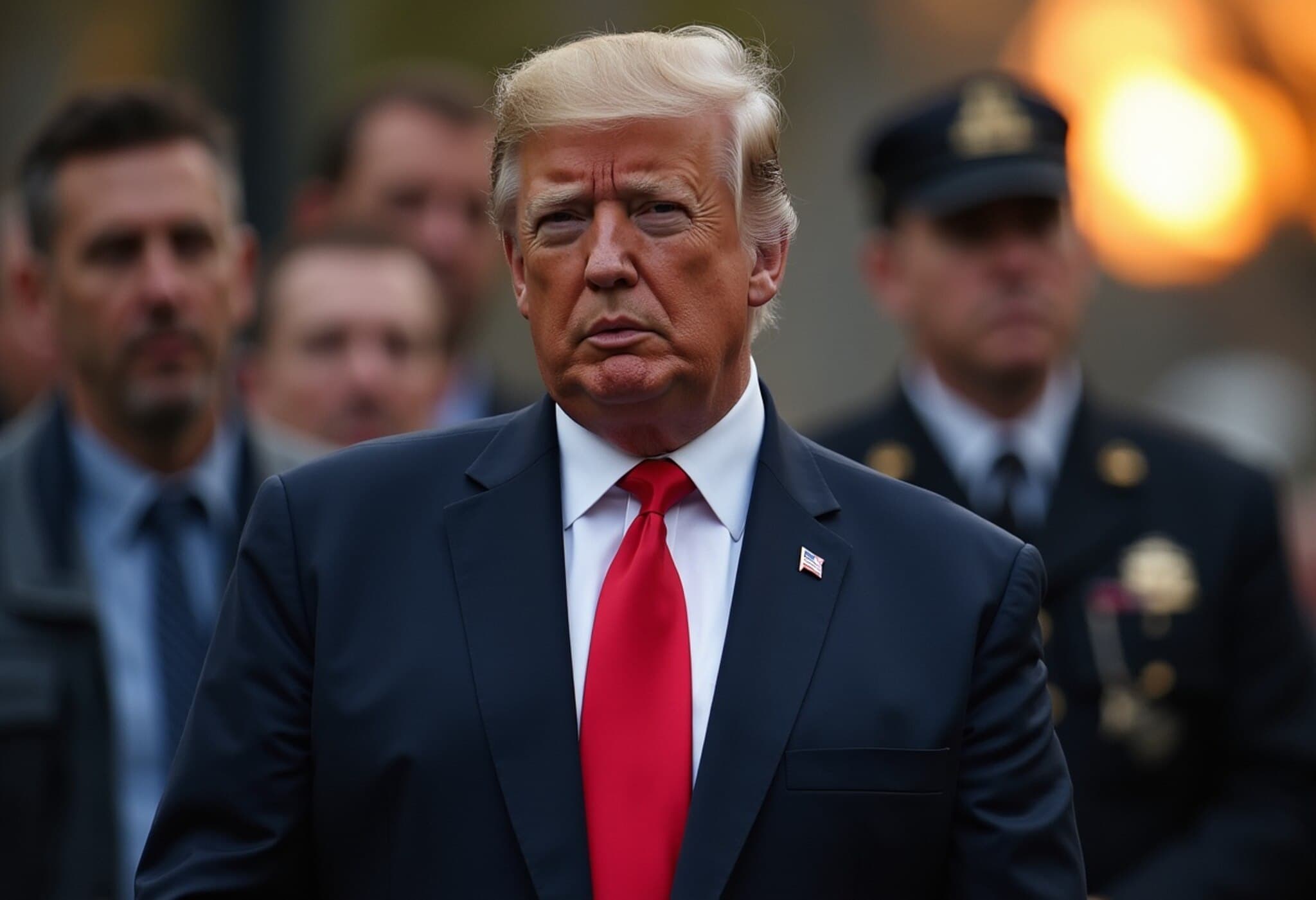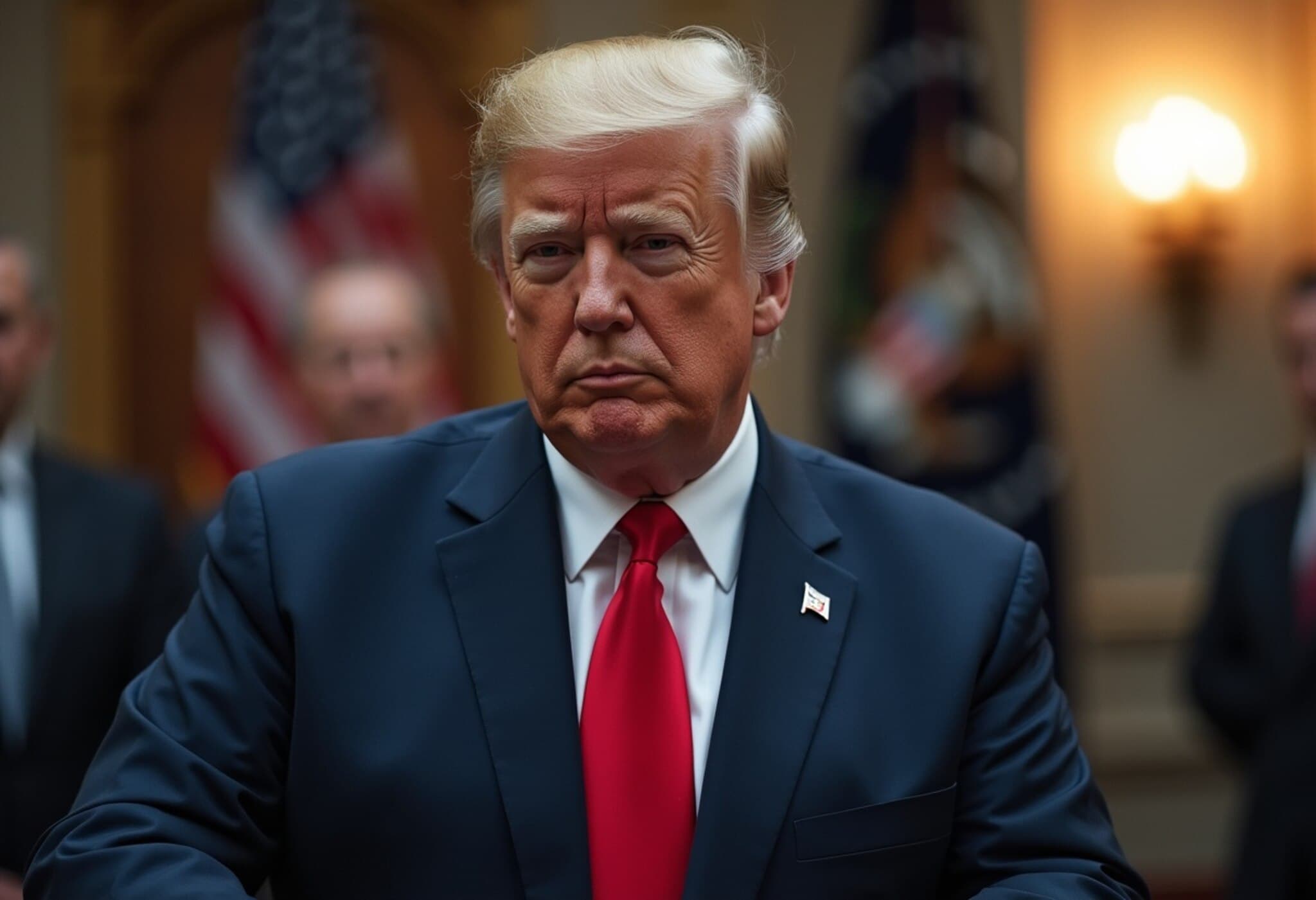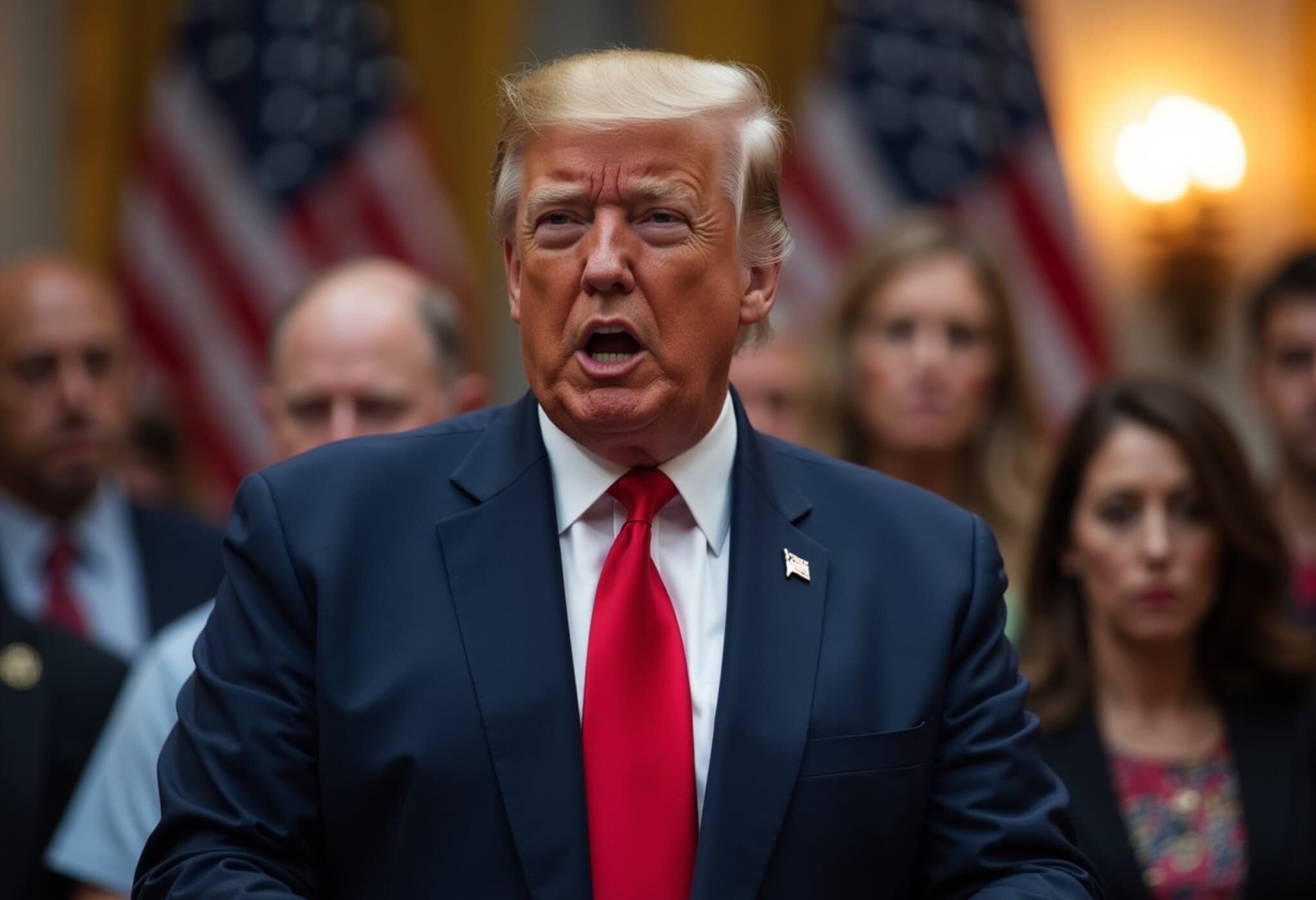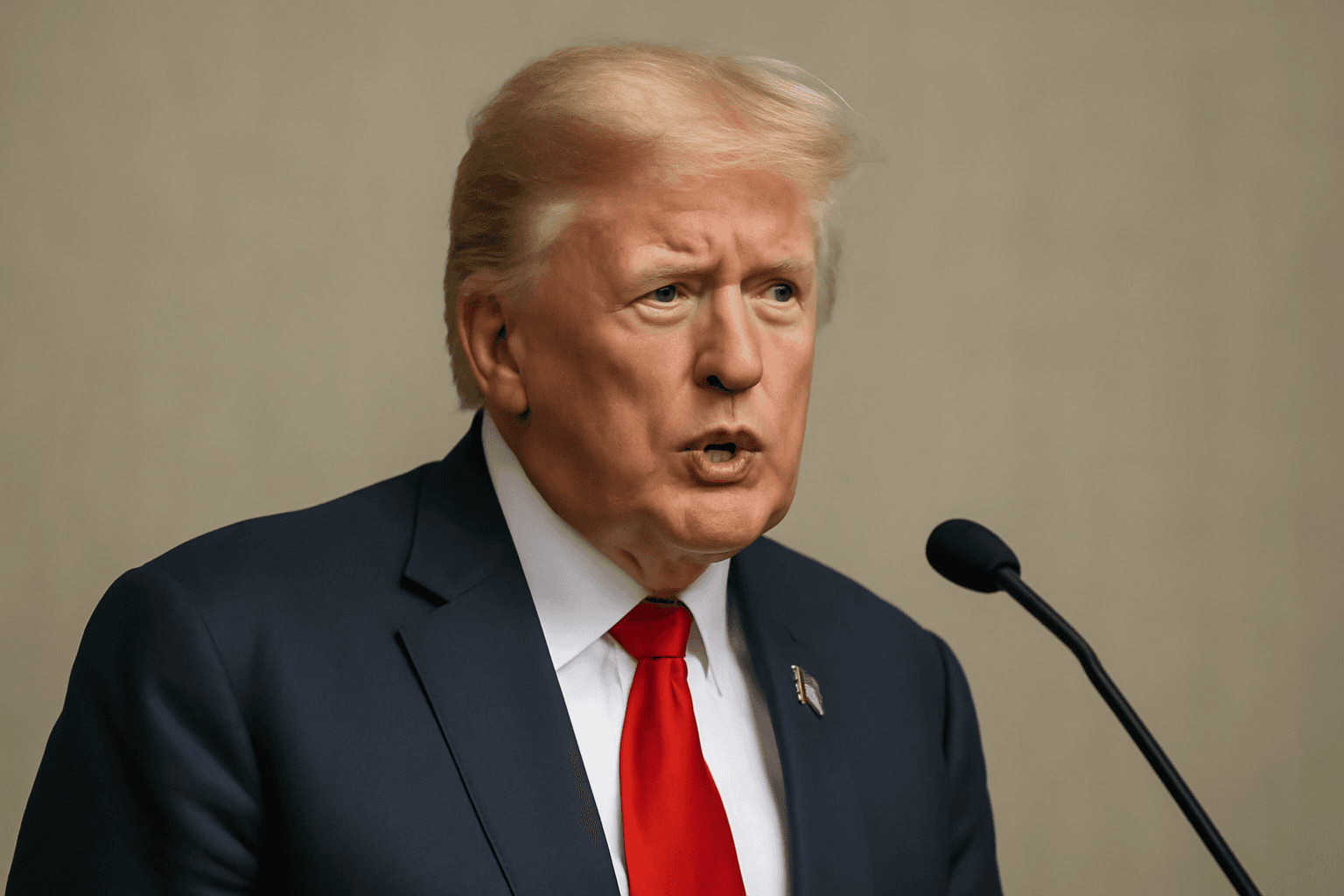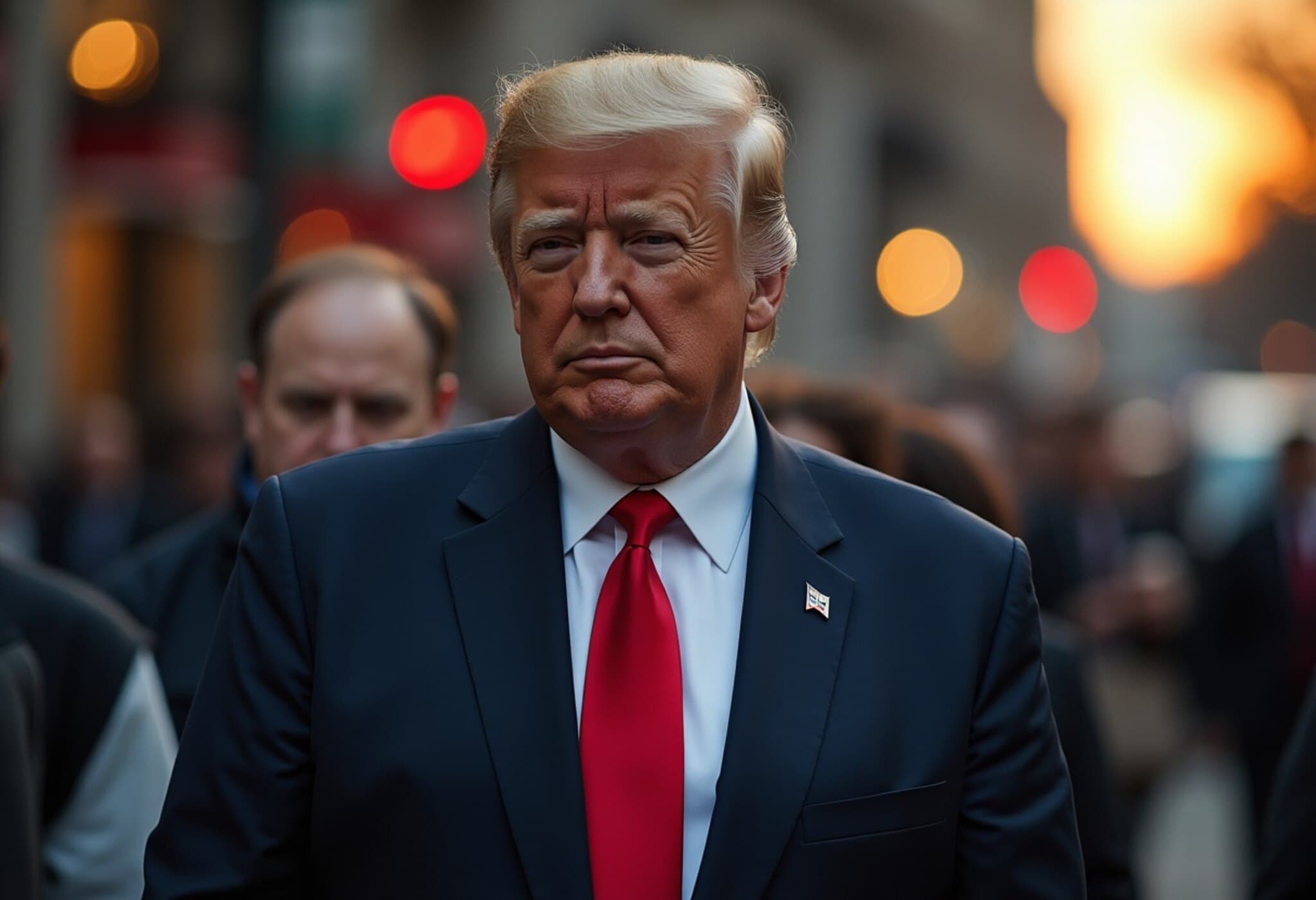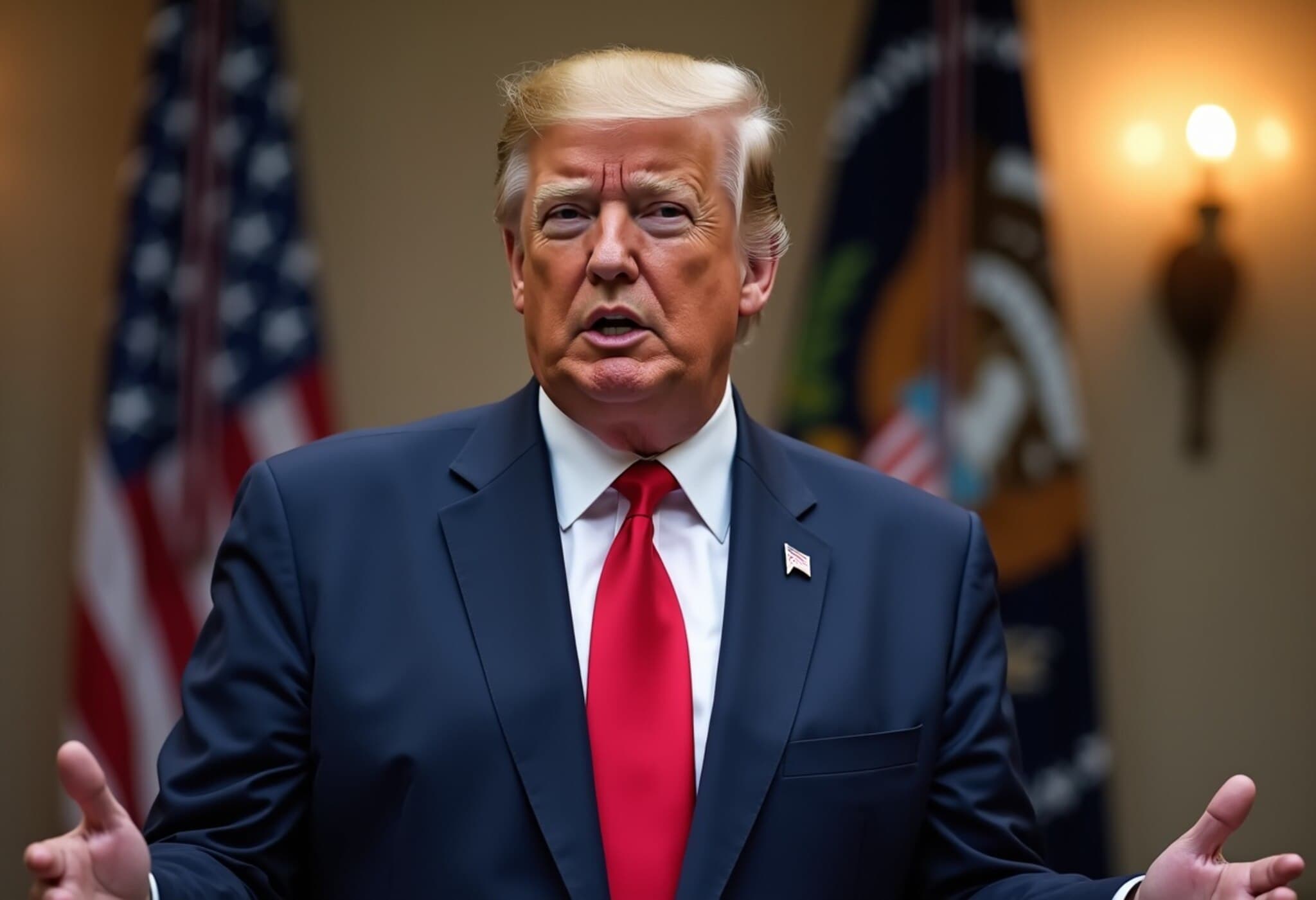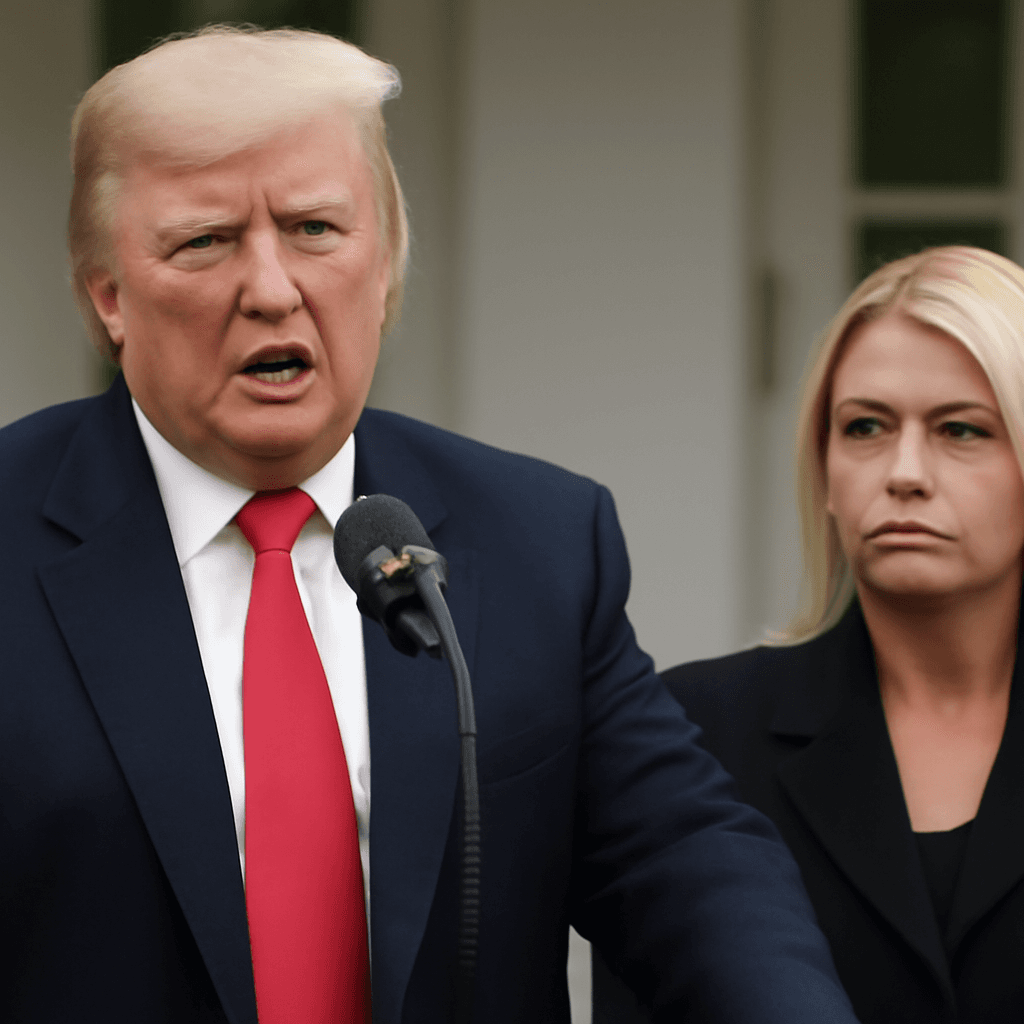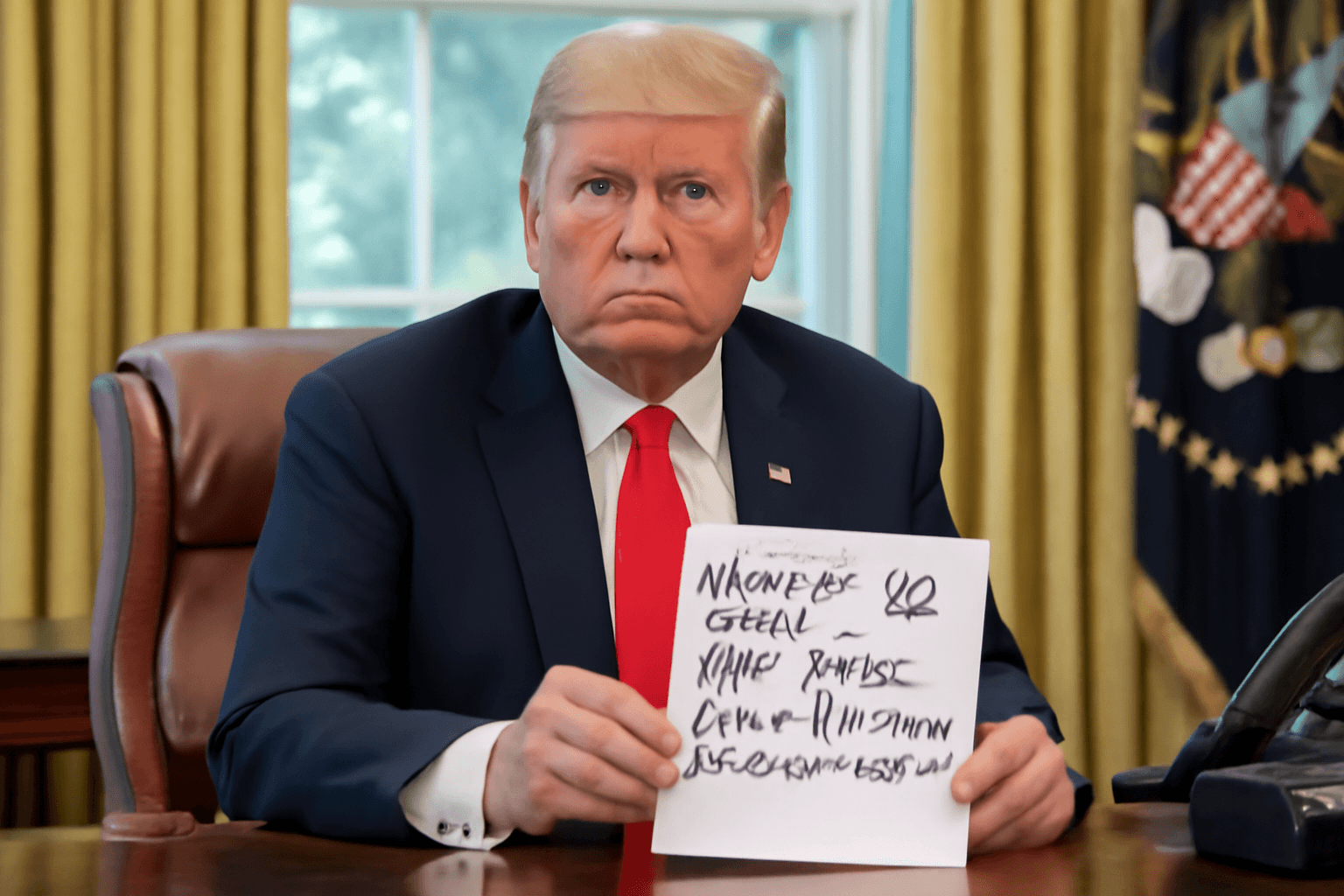The Epstein Scandal Shakes Trump’s MAGA Stronghold
In a dramatic twist befitting the stormy landscape of American politics, former President Donald Trump finds himself under intense scrutiny again—this time over his longstanding connection to the disgraced financier Jeffrey Epstein. As fresh revelations emerge and internal pressure mounts, Trump has turned toward a familiar strategy: redirecting blame to Barack Obama. But can this tactic still rally the fragmented MAGA movement, or is it losing its power?
Deflecting Fire: Trump’s Latest Accusations
Amid renewed questions about his ties to Epstein, Trump publicly accused Obama of orchestrating a “treasonous coup” alongside Hillary Clinton, citing a recently declassified and controversial report from then-Director of National Intelligence Tulsi Gabbard. The claim, lacking substantive evidence, was swiftly dismissed by Obama’s office as a “weak attempt at distraction.”
Yet, beyond mere deflection, this maneuver reignited long-standing conspiracy theories and aimed to bolster MAGA loyalists’ focus on a shared adversary. Historically, Trump has leveraged such narratives to unite and energize his base. But the intensity of the Epstein revelations is now testing that dynamic.
Why the Epstein Files Matter More Than Ever
- Personal Connections: Trump and Epstein were publicly seen together throughout the 1990s and early 2000s, including social events at Mar-a-Lago.
- Explosive Evidence: New documents, including a frame-grabbing 2003 birthday card allegedly sent by Trump to Epstein depicting explicit imagery, have renewed public outrage.
- Legal Battles: Trump escalated tensions by filing a $10 billion defamation lawsuit against The Wall Street Journal, Rupert Murdoch, and its reporters over the card’s publication.
- Demand from Within: A growing faction within MAGA, including outspoken conservative commentators, are pressing Trump for greater transparency about the Epstein network.
As these elements collide, the usual mix of lawsuits and social media bluster seems to be losing traction among Trump’s own supporters, some of whom feel betrayed or restless for truth.
Internal Rift: MAGA’s Growing Fracture
The Epstein scandal has unearthed fissures within the MAGA coalition that have gone largely unreported. While Trump's base is often portrayed as monolithic, pressure is building from conservative voices demanding accountability and clarity.
Conservative commentator Matt Walsh encapsulated this frustration, stating, “You cannot allege a treasonous conspiracy and then do nothing about it. Funny memes and sound bites aren’t going to cut it anymore.” The sentiment hints at a broader impatience among Trump loyalists with what they perceive as performative politics.
Political Stakes and the Broader Implications
Trump’s attempt to discredit Obama by reviving the “Deep State” and election interference narratives intersects with the Epstein files in a calculated move to shift the narrative. Yet this strategy comes at a time when internal and external political pressures converge.
- Justice Department Findings: The DOJ declared Epstein’s death a suicide and found no evidence of a client list, conclusions that have deeply unsettled segments of Trump’s support base.
- Congressional Maneuvers: Representative Thomas Massie (R-Ky.) has promised congressional action to unseal more Epstein-related files, signaling institutional pushback.
- Media and Public Opinion: The sustained media focus, including coverage of Ghislaine Maxwell’s cooperation with the DOJ, intensifies scrutiny and public demand for answers.
Speaker Mike Johnson’s recent decision to abruptly adjourn the House rather than vote on releasing additional Epstein files only ratcheted tensions higher, showing the complexities of Congressional politics amid scandal.
Obama’s Office Responds: Steady Amid the Storm
Obama’s team responded firmly but measuredly, deeming Trump’s treason claims “ridiculous.” The response underlines not only political calculation but also a commitment to preserving public trust against misinformation—a critical concern in today’s polarized climate.
The Road Ahead: Can Trump Navigate the Epstein Firestorm?
As Trump clings to his political playbook—accusations of treason, Russia collusion, and Deep State conspiracies—the effectiveness of these tactics is waning. Broadcaster Michael D’Antonio encapsulated this with insight, saying, “Donald Trump’s fantasy is to be the guy who takes the key to the Oval Office from Barack Obama’s hand,” a metaphor reverberating with both hope and delusion.
Meanwhile, voices within MAGA question why Trump has yet to deliver on promises to expose the full Epstein network. As Ross Douthat noted in the New York Times, “No one controls MAGA — not even Trump.”
Key Questions to Watch
- Will congressional and legal efforts unearth new Epstein-related evidence capable of shifting public opinion?
- Can Trump’s strategy of deflection and blame withstand the skepticism growing within his own movement?
- How might the Epstein revelations influence the 2024 presidential campaign and intra-party dynamics?
Editor’s Note
The Epstein saga is more than a scandal; it is a mirror reflecting fractures within America’s political soul and the complex loyalties of a movement built in controversy. For Trump, it represents a turning point—whether old tactics suffice or whether new narratives must emerge to maintain influence. For MAGA supporters, it is a challenge to reconcile loyalty with demands for truth and accountability.
As these stories unfold, readers should ask not only what has been hidden but also why transparency matters in sustaining democracy. The Epstein files are a reminder that the pursuit of truth is often as politically perilous as it is necessary.
By an experienced political analyst and journalist dedicated to unpacking the nuances of American power dynamics.

